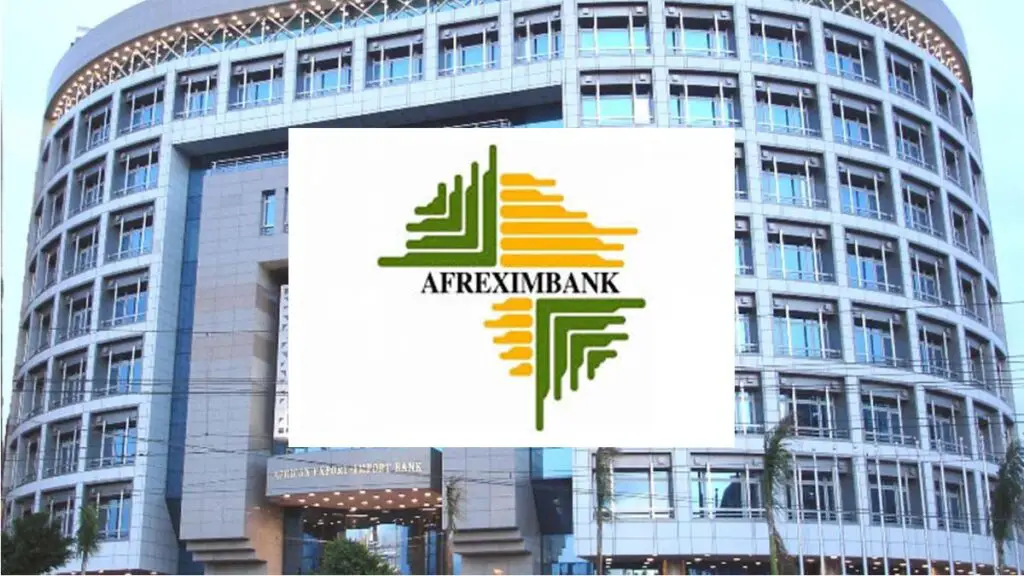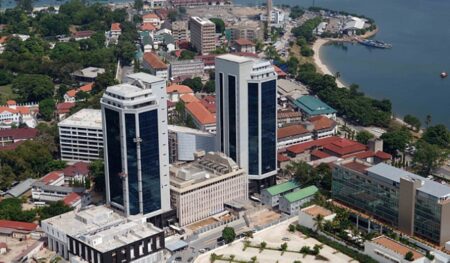- Afreximbank and Nigeria’s Anambra State have partnered to advance the state’s “Smart Mega City” vision and foster economic growth in Africa.
- The partnership involves an MOU that seeks to offer project preparation and advisory services for state development.
- The collaboration opens the door to a potential debt financing of up to $200M, which could support the realization of transformative projects.
The African Export-Import Bank (Afreximbank) and Nigeria’s Anambra State have entered into an agreement to accelerate the region’s vision of becoming a “Smart Mega City”.
In an agreement signed during the Anambra Investment Summit, the partnership also underscores Afreximbank’s commitment to fostering economic growth and development across Africa.
The MOU, signed by Afreximbank’s Executive Vice President, Intra-African Trade Bank Kanayo Awani and the Governor of Anambra State, Charles Soludo, signifies a collaborative effort to drive state development through the provision of project preparation and advisory services.
It also opens the door to a potential debt financing program of up to $200 million, which could catalyze the realization of transformative projects.
Nigeria’s Anambra State
Ms Awani said that Afreximbank’s mission aligned seamlessly with Anambra’s industrialization objectives. This includes its vision for a smart mega city. She noted that the bank had identified the emergence of industrial parks and special economic zones as a strategic priority to accelerate Africa’s industrial infrastructure development.
“These facilities not only optimize capital deployment but also drive economies of scale and nurture ecosystem development. They also enable the use of otherwise inaccessible technologies and cutting-edge infrastructure,” she noted.
Awani added that such projects required substantial funding, noting that innovative partnerships, including public-private partnerships, had emerged as instrumental bridges capable of closing the infrastructure gap that spanned the African continent. The African private sector holds immense potential to bolster a wide spectrum of public sector endeavours, she said.
“Just as we have championed the transformative potential of industrial parks and special economic zones across Africa through public and private sector collaboration, committing over $1.5 billion so far to the realization of these projects, Afreximbank is ready to support Anambra State, as it is doing in Ogun and Abia States (Enyimba Industrial City), to promote similar projects here,” she said.
Also Read: Afreximbank and China Development Bank team up with $400M boost for African SMEs
What the MOU means for Anambra State
Afreximbank and the Anambra State will work together to prioritize strategic projects for preparation and funding. These projects include the Ikenga Mixed-Use Industrial City, the Anambra Export Emporium, and the Akwaihedi Unubi Uga Automotive Industrial Park, among others.
The goal is to establish these projects’ bankability and create a time-bound work program for execution. The MOU also includes provisions for collaboration on trade and investment promotion within Anambra State.
This partnership will leverage the African Sub-Sovereign Governments Network (AfSNET) to facilitate the implementation of the African Continental Free Trade Agreement (AfCFTA).
It aims to provide training, capacity building, and investment forums, fostering collaboration between sub-sovereign governments in Africa.
Afreximbank and the Anambra State Government will also collaborate to secure a financing program of up to $200 million, contingent upon reaching a substantive agreement. This financial support could be a game-changer for the state’s development initiatives. (https://kadence.in/)
The MOU outlines the provision of transaction advisory services to facilitate the procurement of debt and equity capital, as well as senior debt structuring. This support will help streamline the financing process for key projects.
Nigeria’s insecurity hampering investment
Nigeria has over the years faced mounting security challenges. In the northeast of the country, terror group Boko Haram continues to wage war on Nigerian troops and civilians.
Additionally, clashes between farmers and pastoralists in the northwest and north-central regions of the country are a persistent challenge to Nigeria’s agricultural sector.
Separatism, ethnic violence and attacks on oil installations all add to an increasing list of security concerns for investors. What’s more. insecurity has affected foreign capital flows into Nigeria and some parts of the country are considered to be unsafe. This narrows down the kind of investment that will come in.
“With peace and security gradually returning to the state, with our youth beginning to realize that their future cannot thrive in an environment of widespread insecurity, we can look forward to a similar US$400 million industrial park project in collaboration with the State,” Awani noted.
Data from Nigeria’s National Bureau of Statistics (NBS) shows only six out of the 36 states of the country secured foreign investments – Lagos ($1.12 billion), Abuja ($446.81 million), Anambra ($4.15 million), Oyo ($2 million), Katsina ($0.70 million) and Plateau ($0.04 million) in the first quarter of 2022.
Afrexim Bank’s success in Nigeria
Afreximbank’s successful collaboration with Nigeria has been evident through its substantial investments in the country’s economy. Afreximbank’s collaboration with Nigeria has been fruitful over the years, seeing the Bank invest over $36 billion into Nigeria since 1993.
Afreximbank flagship projects currently underway in Nigeria include the $300 million 500-bed Africa Medical Centre of Excellence in Abuja. This project is a partnership with King’s College, London, the Afreximbank Africa Trade Centre, also in Abuja, and the Africa Quality Assurance Centre in Shagamu, Ogun State.
Afreximbank’s commitment to supporting the emergence of industrial parks and special economic zones across Africa aligns with broader efforts to enhance the continent’s industrial infrastructure.
These endeavors optimize capital deployment, drive economies of scale, and nurture ecosystem development.
Awani said that innovative partnerships, including public-private collaborations, are pivotal in bridging Africa’s infrastructure gap. The private sector, with its immense potential, can complement public sector efforts and drive progress.
The creation of AfSNET further underscores Afreximbank’s dedication to promoting economic development and intra-African trade. This platform facilitates collaboration between sub-sovereign governments, allowing for information exchange and peer learning, which are crucial for Africa’s economic progress.
“We have advanced discussions with Anambra State Investment Promotion and Protection Agency (ANSIPPA) to implement creating over 10,000 jobs while bringing export-oriented businesses to Anambra state,” she noted.
Also Read: Is Nigeria’s forex policy affecting the economy?











